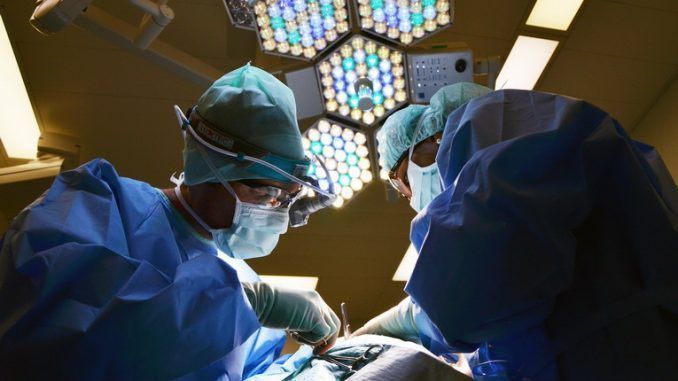
Cosmetic surgery, the’interview with Dr. Dario Martusciello
The cosmetic surgery, also defined cosmetic surgery, Is a branch of surgery aimed at improving the’physical appearance. More and more people, even under 25, are turning to specialists, to “correct” some small defect, often, in the belief that they can gain more confidence in their relationship with themselves and others. Year-end 2018 estimates place us among the countries in which, the demand, for cosmetic surgery, undergoes exponential increases.
Today, the editorial staff of The Tabloid decided to interview Doctor Dario Martusciello, Medical Surgeon and specialist in Maxillofacial Surgery, teacher and referral of some aesthetic medicine techniques , founder of different brands ( such as EPILE EASY; DAMA COSMETICS …) and is among the most renowned Italian surgeons.
Doctor what are the motivations that lead a patient to change their physical appearance?
The reasons are various and many :basic I believe that there is an inner conflict between one’s perception of oneself and the mirror. Many patients in fact come to my attention because they are dissatisfied with their physique, the social image they give , or even because driven unfortunately, by unrealistic aesthetic models they often find on various social. A careful assessment of the emotional drive that drives a patient to change her appearance should in my opinion be an integral part of a specialist visit.
Tells us which surgeries are the most requested and which are the least?
People demand what they see unfortunately, and they are conditioned by prototypes of aesthetics that can also vary according to fashions , different cultures , seasons . We live in an era where ‘being has been subdued by appearance and therefore even the very need to improve oneself aesthetically often , but fortunately not always, stems from the desire to conform to stereotyped images .
Which age group is most likely to ask for cosmetic surgery?
It depends. Certainly the average age has lowered , and more and more even teenage girls are coming to me for impractical and unfeasible cosmetic surgeries , to which I obviously respond with a smile. Then there is the group of girls and boys in the limelight, the 20-30 year olds who want to stand out by competing for selfies on various social networks to attract attention to themselves. there are the recently divorced 45-55 year olds, who want at all costs to make up for lost time , “buying ” a new youth.
Finally there are the 65-75 year olds who simply want to have a ” refreshment” without excess , without overdoing it , they do it semeplicemente to feel good about themselves in the knowledge that more than a few compliments in the halls of smooth , they can not have.but of course irony aside there are a large number of people who resort to these treatments simply because they have a desire to improve themselves and why not to please others, without being dependent on the judgment of others: my patients!
There are cases in which you do not recommend the surgery?
I often find myself saying no. If I realize that there is an underlying general latent dissatisfaction , if I realize that the psychological condition of the patient is unstable or if the requests do not really respect the classic aesthetic standards , body proportions or if the expectations are unreal , I categorically say no.it is incumbent on a doctor even before a cosmetic surgeon , to take care of the physical and aesthetic well-being of a patient but also and especially that me
Surgeries are all zero-risk?
There can be complications?. Every cosmetic surgery brings with it a baggage of possible complications and risks both intraoperatively and long after surgery . It is incumbent on a physician to make sure that all devices used , means the instruments, are in accordance with the needs of the patient and prevent all possible complications by playing it forward. By now people have forgotten the term surgery and remember only cosmetic, and they think they go to the beautician to get their nails done , with all due respect to beauticians of course.
Following surgery, there can be psychological impacts?
Yes. Especially in facial surgery. So I like to listen to patients trying to understand what they really expect from my performance and what they would like to improve about themselves, trying to identify possible signs of psychological instability. I really like to inform patients about all the risks by ” scaring ” them a little, selecting patients who are actually motivated to face a path of aesthetic and also and especially psychological improvement .
Italian technologies are, to date, in step with those of countries where surgery is widely demanded by the population? There is room for improvement?
We have now ventured into the robotic era, where machines will replace or rather complement in a solid and concrete way , the surgical performance. Often though, there is also a lot of marketing, which pushes both the patient and the physician to find the equipment with the increasingly developed design and performance. Also in this field unfortunately there is a consumerism and a desire for novelty, as if what had been done before was not enough , a need that enriches the already well-filled wallets of the multinationals that produce these devices. Improvements are there , there always will be .
What advice can you give to people who are hesitant to take action on their physical appearance?
I recommend waiting, reflecting , talking with me, trying to understand why they are undecided, why they want to do it , whether they actually do it for them or for others. In the second option rather than a in a healthy, cheerful and happy environment such as my practice, the doctor will find himself filling out legal complaint forms undergoing stress and dealing with unnecessary friction will surely undermine the health of both the doctor and the patient.